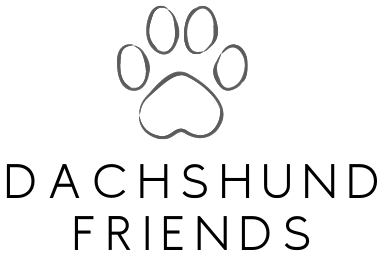Christmas Dangers For Dachshunds - Foods Not To Give Your Dog
The festive season is a time where many of us like to indulge in party food and snacks with our family and loved ones. However many of the foods we eat at this time of year can make your dog very sick, and at worst be fatal. Therefore it is important to be aware of the dangers and know which foods to keep out of the reach of your dachshund at this time of year.
In fact, the Kennel Club last year released statistics that showed that dogs are 75% more likely to need treatment in December due to ingesting food they shouldn’t have eaten than in any other month in the year. This is due to the increase in foods we as humans consume regularly at this time of year. When socialising with friends and family during the festive season, we are also often prone to letting our guard down, so may not keep as close an eye on what treats our pets are sniffing around.
We have listed some examples of the most common foods and treats to keep away from your dogs during the festive season - this however isn’t an exhaustive list, and it is advisable to check with your vet if your dog has accidentally eaten something that was intended for human consumption, just in case.
Raisins & Sultanas
Grapes and dried vine fruits, such as raisins, sultanas and currants, are extremely toxic to dogs and can cause vomiting, diarrhoea and in severe cases kidney failure, which can occur up to 72 hours after consumption. These fruits are present in many festive foods including mince pies, Christmas pudding, Christmas cake, stollen and chocolate covered raisins.
It is believed that the dried versions such as raisins are more toxic than fresh grapes, but all should be strictly avoided, as it isn’t known what specific quantity is needed to cause harm. With this in mind, if you suspect or know that your dog has consumed any products containing dried fruit such as raisins or sultanas, contact your vets immediately.
Chocolate
Another prominent treat for humans during the festive season which can be extremely serious when consumed by dogs is chocolate. At Christmas we often have loads of chocolate in our homes - from advent calendars, through to chocolate coins, selection boxes and tins, and even chocolate tree decorations. Chocolate contains theobromine, which is a chemical that is similar to caffeine, and can be toxic to dogs when consumed in large quantities. Similar to dried fruit, the exact amount of chocolate that is needed to be poisonous for dogs isn’t known, it can depend on the type of chocolate that they ate, how much was consumed and the size of the dog.
As dachshunds are small dogs, it is always best to react with caution if your dog has consumed any chocolate, and contact your vets straight away. It is helpful to provide the vet with any information about the chocolate that has been eaten - such as what type of chocolate it was that the dog has eaten and the quantity - as this can help the vet to determine whether it is likely to have been a toxic amount that was consumed. Most dogs do make a full recovery after consuming chocolate, although it is always best to be safe. Keep all chocolate treats well out of the reach of your pets at all times, but especially at Christmas!
Sugar-Free Treats and Sweets
Another one to watch out for is the artificial sweetener xylitol, which is present as a sugar alternative in some sweets and treats. Always check the labels of products for xylitol and keep these well out of your dog’s reach. Xylitol can cause a number of issues such as liver failure, and can also cause the dog's blood sugar level to drop to dangerous levels. As with the other foods mentioned above, contact your vet if you suspect your dog has consumed something containing xylitol.
Onions
Onions and other plants that are part of the allium family can damage a dog’s red blood cells and can cause severe anaemia. At Christmas, onions are often included as part of traditional stuffing that is served with a Christmas dinner, and may also be in other accompaniments such as gravies and sauces. Like many of the other foods mentioned here, the effects of poisoning can be delayed, so take extra care to ensure your dog doesn’t consume anything that may contain onion or related foods and seek advice if you believe any has been consumed.

